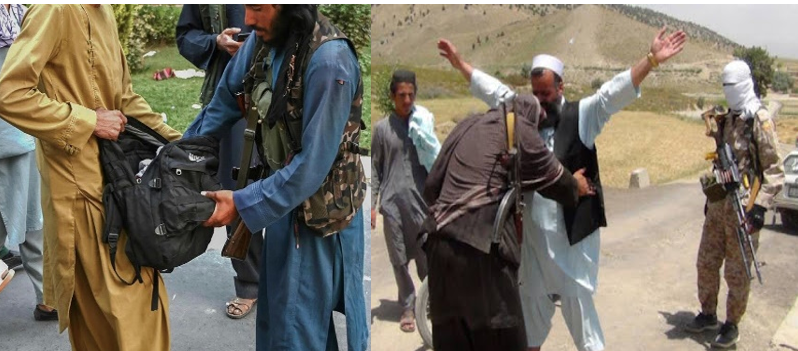RASC News Agency: As the forced expulsion of Afghanistani migrants from neighboring countries grinds on, a stark new United Nations report exposes what awaits many returnees on the other side of the border: surveillance, interrogation, arbitrary detention, torture, and the systematic denial of fundamental rights. Compiled by the United Nations Assistance Mission in Afghanistan (UNAMA) and the Office of the High Commissioner for Human Rights (OHCHR), and based on interviews with 49 deported Afghanistani migrants in 2024 primarily from Pakistan and Iran the findings make one reality unmistakably clear: the Taliban do not treat returnees as citizens in need of protection, but as suspects, enemies, and leverage.
One former civil servant described being seized upon re-entry, then tortured for two consecutive nights beaten with tree branches and electric cables, subjected to mock executions and intense psychological abuse leaving one leg severely injured. A female journalist recounted how, after returning, she lost the right to work and move freely, while her daughters were barred from school. She characterized her life under the Taliban as “house arrest.” Volker Turk, the UN High Commissioner for Human Rights, warned that no individual should be returned to a country where they face persecution or torture because of their identity, profession, or past affiliations, underscoring in particular the unbearable risks borne by women and girls under Taliban rule. He urged states to immediately halt forced returns to such environments and to respect the principle of non‑refoulement embedded in international human rights and refugee law.
Local sources at Islam Qala and Pul‑e Abrisham confirm that Taliban intelligence units are systematically combing through the ranks of deportees, actively searching for former soldiers, civil activists, journalists, and anyone appearing on their detention lists. Many returnees report being interrogated on the spot; some have been transferred directly from the border to Taliban detention centers. Adding to the alarm, the World Organization Against Torture (OMCT) has released corroborating accounts from inside Taliban-run facilities: victims speak of burns inflicted with heated metal rods, beatings with electric cables, electric shocks, and degrading, humiliating treatment designed to terrorize and break them. These practices violate the absolute prohibition of torture under customary international law, the Convention against Torture (CAT), and the International Covenant on Civil and Political Rights (ICCPR).
The UN’s call to states is unambiguous: conduct individualized, rigorous risk assessments before returning any Afghanistani asylum seeker; do not deport those facing a credible risk of persecution, torture, or other grave violations; create safe pathways for those already targeted or at imminent risk; and increase financial support to rebuild shattered lives. Anything less amounts to complicity in foreseeable harm. This crisis is not accidental it is structural. The Taliban’s security apparatus treats deportees, especially former members of the security forces, journalists, civil servants of the previous government, women professionals, and civil society figures, as reservoirs of potential dissent to be neutralized. Profiling at borders, coercive interrogations, enforced disappearances, and the weaponization of “amnesties” that exist only on paper form a coherent strategy of intimidation and retribution. In effect, deportation streams have become a conveyor belt feeding the Taliban’s machinery of fear.
For neighboring governments expelling Afghanistani migrants at scale, the UN report is a legal and moral indictment: collective, indiscriminate returns without robust, individualized screening risk violating the bedrock principle of non‑refoulement and exposing people to torture and persecution. For the Taliban, the report is another forensic record of a regime that confuses rule with domination, citizenship with subjugation, and security with terror. The international community’s obligations are clear. Stop forced returns to a jurisdiction where torture is credible, widespread, and well-documented. Fund independent protection mechanisms at border crossings, staffed by trained monitors with the mandate to intervene. Support emergency relocation and humanitarian corridors for high‑risk categories women journalists, ex‑soldiers, human rights defenders, and minorities. Condition any engagement with the Taliban on verifiable access for UN human rights monitors to detention sites, publication of detainee lists, and enforceable guarantees against reprisals.
Until then, every busload of deportees pushed back across Afghanistan’s borders is not merely a humanitarian tragedy in the making it is a test the world keeps failing, and a lifeline the Taliban keep twisting into a noose.






